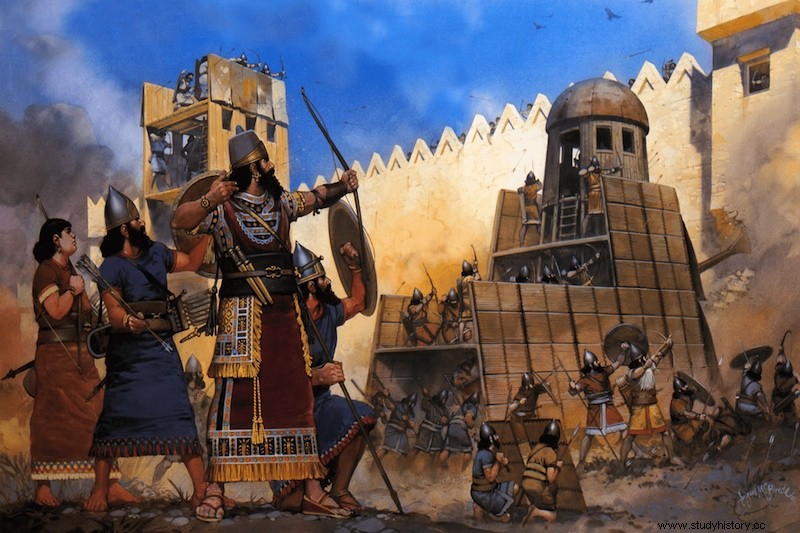Whenever popular phrases from the history of cinema come up, there is someone who says:“I can't find my legs ”. Actually, in the movie Cornered , John Rambo said:“…and I can't find his legs. I can't find the legs. I can't get it out of my head. And so seven long years, day after day… ”. It is possibly one of the moments that best defines post-traumatic stress suffered by many combatants after passing through a battlefield.

Many people think that these problems began as a result of the Vietnam War, and this is not true. In reality, before that war conflict, the armies tried to hide the reality. In World War II, soldiers on both sides stole morphine rations to steep tobacco and smoke it as a way to escape blood and gunshots. The British shot "for cowardice." The Americans removed the victim to hospitals in the rear to rest and relax. The Germans forced their pilots to take stimulant drugs and coffee... And sometimes, despite this, the problem came to light. The anecdote of how General Patton beat up a soldier who was suffering from stress is well known. In the First World War the subject was shot or buried in psychiatric hospitals. If we go back even further in time, Herodotus tells us about the Greek Epizelus , who lost his sight during the Battle of Marathon for no apparent reason.

The oldest evidence of post-traumatic stress disorder was found last year. The discovery was made by a team from Anglia Ruskin University of the United Kingdom, led by Professor Jamie Hacker Hughes in collaboration with Dr. Walid Abdul-Hamid , from Queen Mary College From london. The professor, a clinical psychologist and former consultant to the British Ministry of Defense, found clear evidence of this problem in 3,300-year-old Assyrian texts. Under the Assyrian military system, new recruits underwent a year of training and intensive labor building public works. After that time, they entered the campaign for a year, after which they returned to other annual cycles of work and combat.
Clear symptoms of stress are described in the tablets, such as sudden nervous breakdowns and mood swings, convulsions in the extremities or, above all, terrible nightly nightmares. It is also indicated that some warriors saw their deceased companions in dreams, the enemies they had killed hand-to-hand, and even the conversations they had with them. This produced an enormous psychosis in the Assyrians, not only because of the continuous nightmares and the consequent refusal to fall asleep, but also because of the interaction with their victims.

And it is that, for the Sumerians and Assyrians, the world of dreams was as real as the normal world. They thought that what they dreamed really happened, because somehow the dream world was related to the World of the Other Side (or world of the dead and hell). For many years it was thought that the Mesopotamians considered the World on the Other Side as a site located underground. Current translations and new found texts show a different picture. Apparently, for them the infernal world coexisted as a world parallel to ours. The deceased could not interact with the living while they were awake, but once asleep, both worlds merged. For an Assyrian warrior, the idea of having to talk, night after night, with the Elamite soldier he had speared must be appalling . And it should also be noted that at that moment of interaction between the two worlds, the spirits and the deceased could do harm, both physical and spiritual. For a Mesopotamian many diseases were the result of interaction during sleep with a spirit, a devil or an enemy. We can therefore imagine the fear of the Assyrian fighter when for days and days, his victim speaks to him, threatens him and tortures him in many ways.
As we can see, post-traumatic stress has surely existed since the beginning of war and, at times, psychological terror has been joined by another type of terror produced by cultural and religious causes. And it is that, as General William Tecumseh Sherman said :
War is hell.
And someone who created hell on earth during the American Civil War must have known what he was talking about.
Contributed by Joshua BedwyR author of In a Dark Blue World
